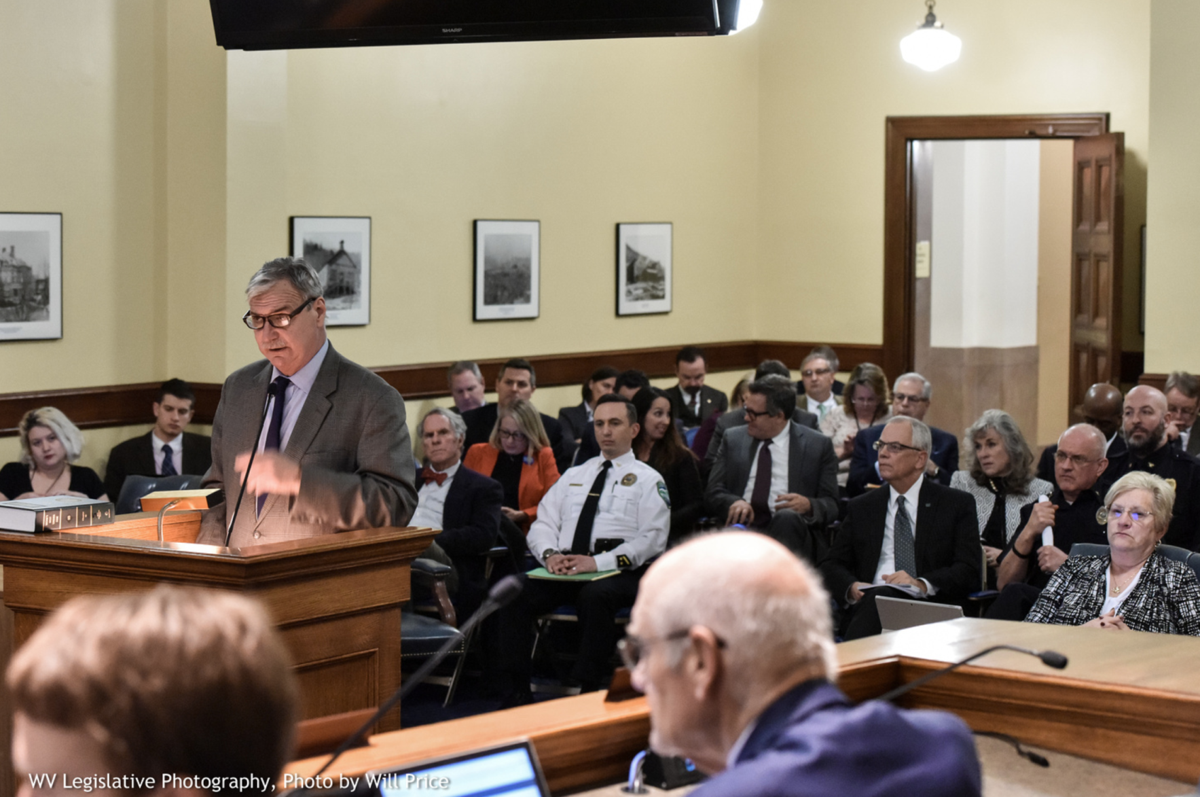Campus Carry Bill Defeated in West Virginia

CHARLESTON WV March 13 2019 — Students and administrators at West Virginia’s colleges have praised the defeat of House Bill 2519, — also known as the Campus Self-Defense Act or “Campus Carry,” — due to the safety and financial implications if such a bill were to become law.
HB 2519 passed out of the House of Delegates on a 59-41 vote before going on to the Senate. However, the House vote was not split evenly down party lines, with prominent Republicans in the caucus voting against the bill, while a handful of Democrats voted in favor of it. Once campus carry reached the Senate, the Judiciary Committee voted 9-7 to reject reporting the bill to the Senate floor.
Again, the vote was not totally split along party lines, as two Republicans on the Senate Judiciary Committee — Sen. Charles Clements of Wetzel County and Sen. Ryan Weld of Brooke County — joined Democrats in voting against the bill.
In a statement, leaders of West Virginia University said they were pleased by the Senate Judiciary Committee’s rejection of campus carry.
“At the beginning of this session, it seemed clear that this bill would pass,” WVU President E. Gordon Gee said. “We appreciate that the leadership in Charleston listened to the concerns raised by our faculty, staff, students and institutions from across the State. We believe this result will continue to allow our Board and institution to maintain a safe environment for our students, staff, faculty and visitors.”
Since the beginning of the process, WVU has maintained that such decisions should be made at the local level by the institutions themselves and their boards of governors.
Students and faculty at WVU protested against campus carry as it was moving through the House of Delegates, with some arguing that the legislation wasn’t getting the appropriate debate and was being rushed.
Marshall University President Jerome A. Gilbert shared similar views, arguing that such decisions should be made by the board of governors.
“The safety and security of our students, faculty and staff is of paramount importance to us and this legislation threatens the very foundation of that responsibility.” he said in a statement.
On March 4, Concord University Student Government Association President Haley Fields led another group of protesters — which also included students from Marshall University, Bluefield State College and Fairmont State University — to the Capitol to voice their opposition to campus carry.
Despite incidents like the 2007 Virginia Tech shooting in which 32 victims died, Fields said more guns on campus don’t equal safety.
“I’m a full supporter of Second Amendment rights, and I know that Virginia Tech has been brought up time and time again,” she said. “One thing I will say is that even though Virginia Tech had that terrible incident happen to them and they reviewed their security measures and made a lot of suggestions, not one of those suggestions was concealed carry on campus.”
Fields said she also spoke with students at Concord who were military veterans, and they didn’t think HB 2519 was a good idea.
Zachary Fancher, a student at Fairmont State University, said student concerns go beyond safety and security. These stem from the bill’s unfunded mandates.
“I’ve had some conversations with officials at our school, and they told us that in order to put in security measures in place to keep us safe at this school, there would be the possibility of a tuition increase. And I know that was a concern for a lot of students as well,” he said.
Campus carry would have cost about $11 million to implement, which other critics have argued should be spent elsewhere, such as roads or infrastructure.
Both Fields and Fancher said Campus Carry stood a very good chance of becoming law and the visible efforts of students and faculty is what stopped it. However, they both said this likely isn’t the last time this issue will come up.
“I expect we’re going to need to pull out all the stops and fight again, and if we can’t it’s going to go through,” she said. “I strongly, strongly suspect it’s going to come back again next year. We’ve already heard things from lobbyists saying it’s going to come back again next year.”
Following the legislative session, Fancher said he hopes a wider conversation can take place involving all parties to find out why those in favor of Campus Carry want it passed and see if some kind of compromise can be made since the issue has come up before and likely will again.
Concord University President Kendra Bogges also said Campus Carry isn’t the best route to go in terms of addressing safety.
“While I do support the Second Amendment and I understand that some of our students were in favor of the Campus Carry measure, the majority of the members of our campus community did not feel this would increase safety,” she said. “Creating a safe environment where students can learn and thrive will always be my highest priority, and I feel that this can be accomplished in many ways that do not involve arming students and faculty.”
wvnews.com



